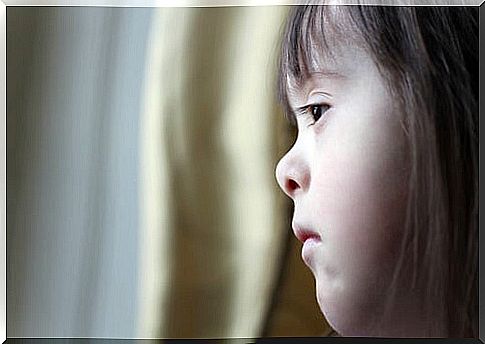Grief In People With Intellectual Disabilities

The birth of a child with a disability has an impact within the family. The event is perceived as something unexpected, strange and rare, which breaks expectations about the desired child. As the child grows, resources and supports of all kinds become more necessary. However, in most cases, families are not prepared to respond to the functions derived from these special needs. One of these needs has to do with communication, especially when it comes to breaking bad news.
All parents who have a child with an intellectual disability ask themselves a question from the day they hear the news : What will happen when we are gone? How to handle grief in people with disabilities?
Phases and types of grief in people with intellectual disabilities
Most authors agree that the grieving process goes through different phases or stages. Grief in people with intellectual disabilities meets these same patterns. These phases go from the initial impact to the definitive recovery or chronification of the problem. Therefore, we can organize this evolution in four phases:
- Initial shock: perplexity, shock. The main symptoms are denial, disbelief and panic at the situation.
- Anger and guilt : it is characterized by the presence of ideas of self-punishment, feelings of anger, search for guilty and abandonment.
- Disorganization of the world, despair and withdrawal : resistance to return to normal life, feeling of weakness and a marked tendency to isolation.
- Affirmation of reality and recovery : the person sees life again with hope. Although there are special moments – which usually coincide with key dates, such as anniversaries – in which you may have the feeling of returning to previous phases of grief, the person faces reality thanks to the previous elaboration of the loss.

Regarding the types of grief, we can distinguish two basic ways of reacting to a grieving situation: normal and pathological. What is going to distinguish these two basic types is going to be the intensity and duration of the symptoms and the degree of affectation in the daily life of the affected person.
Normal grief comes to an end when the person reaches the last phase of the process, having closed the previous phases, so that they are in a position to regain that emotional stability that will allow them to regain their hopes and face other problems. On the contrary, pathological grief can occur in two ways :
- Complicated or not resolved : when the person remains stagnant in any of its phases and there is a very intense experience of that loss, or on the contrary, they experience it with little or no intensity (under apparent anesthesia).
- Psychiatric grief : it is one in which symptoms compatible with a possible diagnosis of a psychiatric disorder are triggered.
How to manage grief in people with intellectual disabilities?
Some general action criteria can help guide and channel the expressions of sadness and despair that often accompany grieving reactions. Although the personality characteristics and the degree of intellectual disability must always be taken into account.
Once the loss has occurred, there is talk of a reactive approach and the guidelines to follow would be the following :
- When and how to give the news? Although it is very painful and difficult, it is best to report what happened as soon as possible. It is best to do it simply, with few words and using easily understood language.
- It is advisable to motivate the person to speak and ask questions. Show concern about what the person with a disability feels, without fear of naming and talking about the deceased person.
- Provide information about death or loss in a clear, simple, direct way, understanding that they are situations that cannot be chosen or controlled.
- Help them recognize that some of their symptoms are typical of the grieving process and that they will gradually fade away.
- Individualized care : take into account your personal characteristics, your particular history, previous responses to other losses, and what has worked before to address them.
- Remember that you can save memories (photos, letters, etc.). It can be helpful to create a memorabilia album or box that allows you to relive certain moments when you see fit.
- In the case of close deaths, make them participate as much as possible in the rituals and events related to the death. It is important that they can anticipate how events will unfold.
- Try to make the person with a disability continue with their daily routines and activities as normally as possible.

Ultimately, one of the biggest concerns of the families of people with intellectual disabilities is what will happen when they are not there, who will take care of their child, if they will take good care of him, if he will be left alone, etc. The truth is that these are questions that no one can answer because the future is uncertain. But being able to anticipate certain important decisions so that others do not have to make them for us, can help us live a difficult moment (such as grief) in a less traumatic way.









